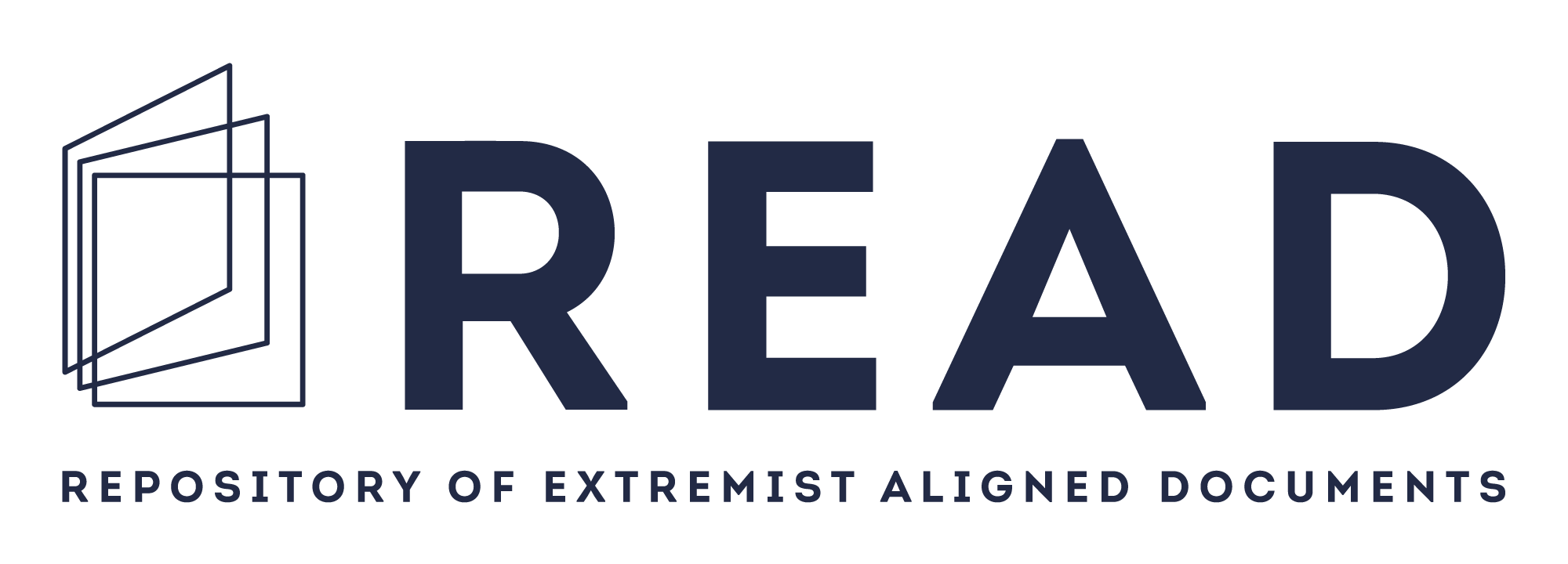What is READ?
The Repository of Extremist Aligned Documents (READ) is a project developed by the Centre for Statecraft and National Security (CSNS) at King’s College London.
Its purpose is to curate a repository of far-right/ideologically motivated violent extremism (IMVE) documents and primary sources.
READ seeks to provide a secure and controlled means for researchers and experts to access far-right/IMVE primary sources, with a database of documents that have been collected and curated with academic rigour.
Who is READ for?
The repository is intended for researchers and practitioners who focus on radicalisation, violent extremism, and terrorism. These include academics, journalists, law enforcement officers, non-governmental organisations, civil society, and policymakers.
Due to the nature of the material, access to READ is restricted. Users can register by completing an application form with an institutional email address.
Click Here to RegisterWhat is our research method?
READ’s methodology is rooted in digital ethnography, which gives insight into how documents are used within extremist digital ecosystems to radicalise, recruit, and mobilise.
Material is sourced from forums, chan sites, Telegram channels, websites, and digital ecosystems used by extremists.
Only items that meet our inclusion criteria are included in READ.
Data collection is conducted with appropriate levels of digital hygiene and operational security (OPSEC).
Ethics and duty of care
Those who research or monitor violent extremists and terrorists are presented with an important duty of care when analysing or reporting on IMVE material.
The sensitivity of researching IMVE actors and content can potentially harm those who visit extremist digital ecosystems. This can be via exposure to upsetting and traumatic content or potential threats to a researcher’s safety. By having a curated archive of primary sources, READ helps reduce these risks for its users.
In the past, extremists have often leveraged researchers and journalists to promote their extremist and terrorist material to a broader audience. They have also shared disinformation to troll and misinform.
Therefore, a balance must be maintained between presenting the facts and raising awareness about current and emerging threat actors while not unduly amplifying or giving oxygen to extremists.
